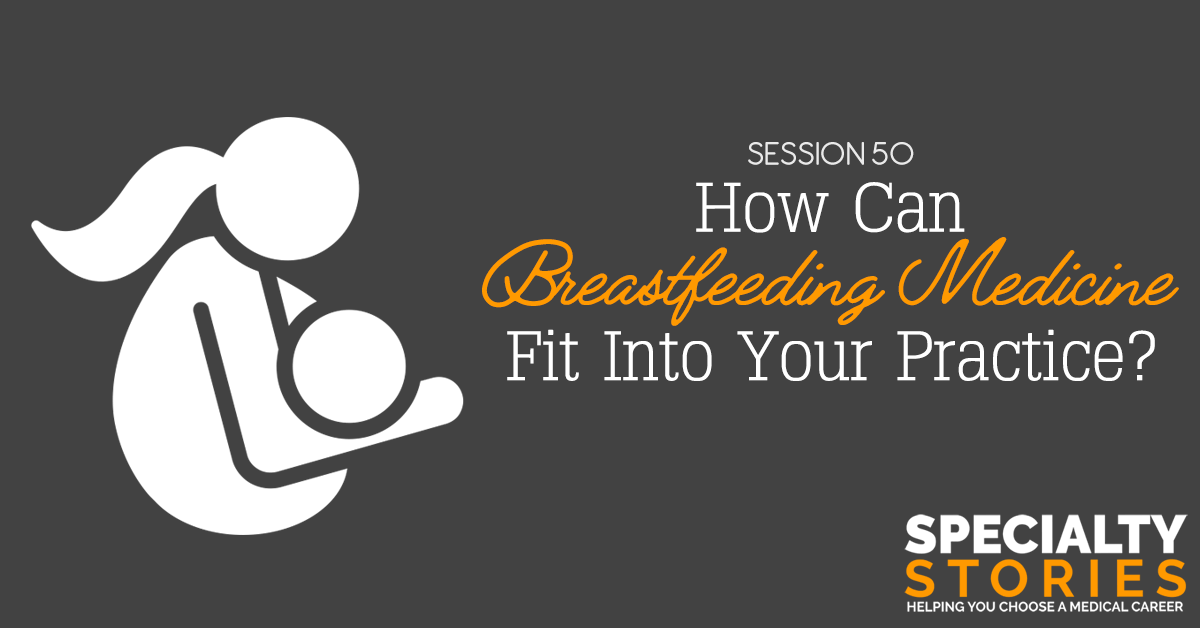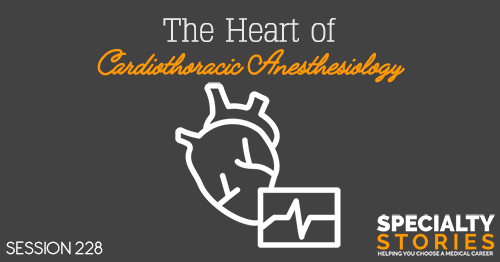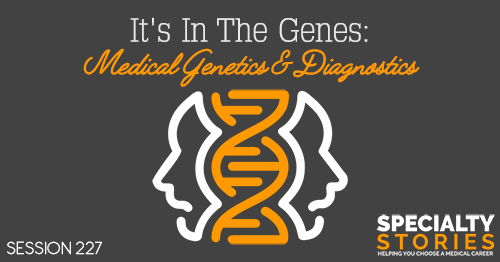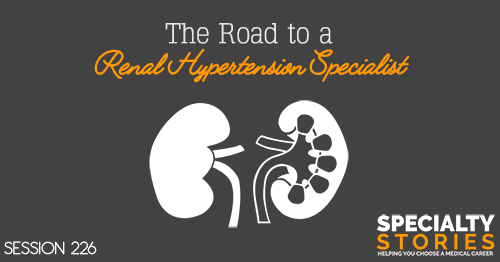Apple Podcasts | Google Podcasts

Session 50
Dr. Kristina Lehman is a Med-Peds doc who specializes in Breastfeeding Medicine, helping new moms and new babies through the struggles of breastfeeding.
Check out all our other podcasts on MedEd Media. If you’re a med student and you want to be prepared for what’s coming, we have a boards podcast coming up for Step 1 and probably Step 2 in the future.
Back to today’s episode, Breastfeeding Medicine is one of those fields that really gets down into a “super” niche which is pretty awesome. Kristina is a Med-Peds doc who has taken some further specialty training being a breastfeeding physician.
While the breastfeeding side of her practice only comprises about 25%, still this is worthwhile to talk about as a stand alone podcast. This will give you the information you need if this is something you’re interested in. Out of training now for about ten years, Kristina is practicing in an academic setting.
[02:13] Her Initial Interest in Breastfeeding
Kristina’s interest in breastfeeding sparked when she had her first child. She always knew she would breastfeed and when she had her baby, she thought she had no idea what she was doing.
So she began researching until she just grew more passionate about it. But the turning point for her was when she discovered the Dr.MILK group, a breastfeeding group. MILK stands for Mothers Interested in Lactation Knowledge. She realized there were people out there who actually are pediatricians and lactation consultants.
Before this, her training focus was in internal medicine and pediatrics. She did a med-peds residency. Coming out of it, she wanted to do primary care and she started in an academic setting. She joined the faculty at where she trained to do Med-Peds Primary Care.
[04:00] Lack of Coverage on Breastfeeding During Pediatric Rotations
Kristina explains that a lot of times, experiential learning comes down from our attendings. Because doctors don’t do a great job at breastfeeding, they’re not likely to advise their patients well, too. To add to that, there is a lot of formula marketing in pediatric residency. A lot of the AAP stuff is sponsored by these companies.
[Tweet “”We know that doctors don’t necessarily do a great job breastfeeding themselves. And that when they don’t do a great job, they don’t advise their patients very well.” https://medicalschoolhq.net/ss-50-how-can-breastfeeding-medicine-fit-into-your-practice/”]
That said, AAP now has a curriculum where they recommend breastfeeding but still it’s not widespread. Also, there are a lot of issues with breastfeeding in terms of other specialties telling that infectious disease antibiotics are not compatible with breastfeeding. So when a mom has a complication, she has to stop breastfeeding or pump and dump. Kristina thinks doctors should just really go back to medical school.
[05:40] Traits that Lead to Being a Good Breastfeeding Medicine Doc
Kristina cites the primary things to be a good breastfeeding doc are wanting continuity of care, being a good listener, and wanting to know what’s going on. Kristina says the need to integrate and see what’s happening to both the baby and the mom. Think about what’s going to be best for both of them.
[Tweet “”You can sit there and talk about what’s really important for the baby but then that can lead mom to the wayside.” https://medicalschoolhq.net/ss-50-how-can-breastfeeding-medicine-fit-into-your-practice/”]
Kristina adds having good problem solving skills is helpful. More importantly, you have to be interested in women and women’s health. You shouldn’t be afraid of breasts since the breasts are a big part of the practice. She admits there are people that are actually scared of that a lot of times.
Kristina says that are male lactation consultants. It’s obviously a female-dominated field. But if you’re a guy and you’re super interested in helping women then it’s like male OB/GYNs. There are a lot of women that see male OB/GYN and they have a good reputation.
[07:37] Other Specialties that Caught Her Interest
Before going to Med-Peds, Kristina was interested in OB/GYN. She loved prenatal visits and all the outpatient stuff that goes with it. She hated surgery and being up at night. So she realized quickly that it wasn’t the right specialty for her. That said, she has always been interested in the women’s health aspect of things.
Within primary care, she was happy just to do straight up primary care. She loves the variety of seeing both kids and adults. And when she found Breastfeeding Medicine, she was happy she had the opportunity to focus on the academics. She was happy she could get to work on it with medical students and residents. She had the opportunity to work on curriculum development.
[08:30] Types of Patients and Taking Calls
On a daily basis, she deals with regular breastfeeding stuff. She’s able to give more evidence-based information and more support for the day-to-day latch and milk supply. When she has a more specialized referral, she gets varied cases. For example, a baby that hasn’t latched since birth. Or it could be a baby that was in the NICU so he/she was formula-fed so they have a hard time getting back to the breasts.
Sometimes too, moms are having a hard time with milk supply so she helps them troubleshoot how to make this better. Although there are really moms that have insufficient glandular tissue which never developed from puberty so there isn’t enough milk supply. She also deals with other issues like cracked and bleeding nipples or mastitis.
[Tweet “”Most of the stuff is just the day-to-day maintenance of breastfeeding that moms just need a lot of support.” https://medicalschoolhq.net/ss-50-how-can-breastfeeding-medicine-fit-into-your-practice/”]
Kristina doesn’t do any of the inpatient stuff such as taking calls. But she wishes sometimes though that there was somebody on call. They recently had a mom that had a wound infection. She was in the hospital and got switched around in antibiotics, specifically Cipro. The doctors on the service talked to the pharmacist and the pharmacist said it wasn’t okay to breastfeed with it. They told the mom that she had to pump and dump. And so for ten days, she had to pump and dump. Then the mom came to her a bit later. But they would have been able to take care of that early on. She didn’t actually need to pump and dump since there was no indication for that.
Moreover, mastitis would be an urgent thing but not necessarily too urgent for you to really drive to the hospital just to see it.
[11:10] Erring on the Side of Safety
Kristina explains there’s a lot of stuff that says benefits outweighs risks. But very few places actually consider a mom’s plasma level and what level gets into the breastmilk. Therefore, how much is the baby ingesting and how much of that ingested amount would the baby absorb into their bloodstream?
There is the infinite risk center run by a pharmacologist that has gone through all this. But doctors prefer to err on the side of safety. But Kristina points out there is more risk of clogged ducts and mastitis if you’re pumping. Throwing milk away is just heartbreaking too. There is also the risk of that formula to the baby if the baby is formula-fed.
[Tweet “”Basically, nobody feels comfortable with the information that is out there saying it’s okay to breastfeed.” https://medicalschoolhq.net/ss-50-how-can-breastfeeding-medicine-fit-into-your-practice/”]
[12:37] Work-Life Balance
Kristina describes having a good work-life balance. Her husband is also a hospitalist in internal medicine. So financially, they’re in a good spot but they’re also busy. They have two kids. She started full-time and as they’re having kids, she has worked herself down to 50%. Currently, she’s working herself back up with some nursery work. Nevertheless, this has allowed her to have some good work-life balance.
Similar to primary care, you’re not on call and you’re not going to the hospital necessarily. It’s mostly an office-based work.
[13:24] What It Takes to Become an IBCLC
Kristina notes that to become an International Board Certified Lactation Consultant (IBCLC), there is an international exam that anyone can take. But there are different pathways depending on your background. The nurse or a doctor has a different pathway than a lay person off the street that wants to get it.
It requires some health and science background classes. As a doctor. you have to do 90 hours of lactation coursework. And you have to have a thousand clinical hours. Fortunately, those aren’t supervised. So if a OB/GYN wants to become an IBCLC, they can use the time they talked for prenatal and postnatal counseling. Their hospital rounds can count too if they took care of mastitis or if they’ve worked with support groups. All those hours can add up.
Once you have those hours, you take the exam and then you’re given this gold standard of certification. You’re reputable and the community is having that level of knowledge and experience.
Another program is the Healthy Children Project, the certified lactation counselor. And this is how Kristina actually got her start. She did a 40-hour course. You do an exam and then do a little certification.
[Tweet “”Technically, anybody can do it. It’s just having that evidence-based information. Make sure you’re learning the right stuff.” https://medicalschoolhq.net/ss-50-how-can-breastfeeding-medicine-fit-into-your-practice/”]
There’s also the Academy of Breastfeeding Medicine that has the fellowship track where you get an FABM designation. They’re also working on a more clinical-based fellowship in the future.
Kristina also adds getting knowledge from mentorship and working other people and getting those other certifications.When it comes to billing, Kristina bills not as a lactation consultant but as a physician.
[16:20] Working with Primary Care and Other Specialties
Again, Kristina recommends making sure that what you know is evidence-based. See if there’s somebody in your area that is more specialized. See if they’re listed on the Academy of Breastfeeding Medicine’s website or there’s a doctor in town that’s IBCLC. This way, you know who to refer to if you’re having issues. Secondly, it’s nice to reach out to them and talk about it especially if you have any questions.
[Tweet “”Search out that extra bit of training so you can be the best resource for your patients possible.” https://medicalschoolhq.net/ss-50-how-can-breastfeeding-medicine-fit-into-your-practice/”]
Other specialties she’s working with are ENT and Peds in Dentistry. Kristina says it’s nice being trained both in internal medicine and pediatrics since she’s self-sustaining. She can take care of the mom and the baby.
But if you’re a pediatrician and doing breastfeeding medicine, you’d probably be working with internal medicine or OB counterpart to help you with some of the mom stuff. Conversely if you’re an OB/GYN, you’d have to work closely with pediatricians to take care of the peds stuff.
Other special opportunities outside of clinical medicine would be academia and research. They sponsored fourth year medical students to do some pre-residency lactation work. She also worked on the curriculum development for the interns in the pediatric residency. She does nursery rounds so she does teaching there.
Research-wise, there are a lot of opportunities in terms of curriculum and teaching development and the biochemical science behind breastfeeding.
[18:55] The Most and Least Liked Things About Breastfeeding Medicine
Kristina has been so enriched with the experience personally that bringing it on to other moms is helpful. She likes the fourth trimester concept when they help moms realize that those first couple of months of motherhood are really overwhelming and exhausting. So being able to support moms through that is enriching for her. She likes watching those kids grow and develop and the parents become parents and learning the parenting kinds of things.
[Tweet “”For me, the biggest things is helping those moms meet their goals and raise cool kids.” https://medicalschoolhq.net/ss-50-how-can-breastfeeding-medicine-fit-into-your-practice/”]
On the flip side, she finds it frustrating how little other people understand about the field. When people do or say things along with their lack of knowledge can affect how they take care of patients.
[20:17] Major Changes in Breastfeeding Medicine
Kristina hopes they can get a more dedicated fellowship or clinical track for this niche. We are in the day and time when breastfeeding is becoming more than the norm. So moms are initiating a lot more and are being more successful. Along with that, we see more moms struggling or having issues that need the support. Unfortunately, Kristina admits the lack of infrastructure for them at this point in time.
Things have definitely been a lot better. But she hopes to continue to see more changes with that like paternity leave for instance.
[21:20] Breastfeeding versus Formula-Feeding
Kristina points out that it’s important to let moms know that there are going to be challenges and they need that support system. So find that support system and make sure you know what your resources are. She often tells parents to never give up on their worst days. Reach out for help when you need it.
[Tweet “”I often tell parents too, never give up on your worst day. You’re going to have bad days. You’re going to have bad moments.” https://medicalschoolhq.net/ss-50-how-can-breastfeeding-medicine-fit-into-your-practice/”]
Breastfeeding also has a lot of health benefits for moms that we don’t usually look at. It actually reduces the risk of breast cancer, diabetes, heart disease, hypertension, multiple sclerosis, etc. So there are lots of benefits for moms as well. So there should also be a focus not just on the baby but also on moms.
[22:35] Final Words of Wisdom
If this is something you’re interested in, Kristina recommends checking out the Academy of Breastfeeding Medicine. They have a great website with a lot of great protocols there which are evidence-based.
If you’re a woman and interested in this, look up Dr.MILK group. They have over 10,000 members on Facebook. They welcome even those who are not breastfeeding but just want to learn more about breastfeeding.
Lastly, be open to the fact that you may not get a lot of training about this but it’s super important and there are opportunities out there to learn more.
Do you have any ideas for specialties or if you know any physician whom you think would be great guest on this podcast, shoot me an email at ryan@medicalschoolhq.net.
Links:
SEARCH SITE
LISTEN FOR FREE











